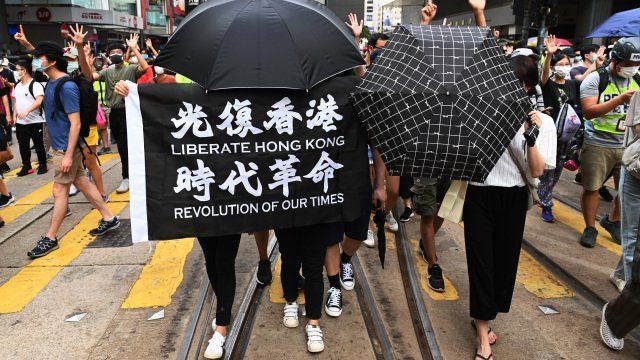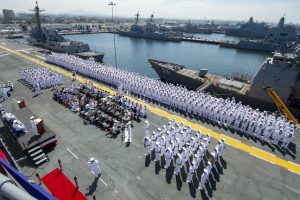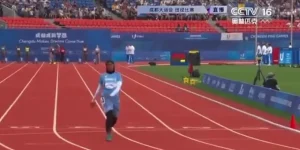Tong Ying-kit, 24, became the first person to be found guilty and charged under the Hong Kong national security law. He now faces life in prison. He was found guilty of terrorism for crashing his bike into a group of police officers. This act of his injured three police officers.
He was found guilty of inciting secession for carrying a large black banner with the anti-government protest slogan “Liberate Hong Kong; revolution of our times” written on it.
According to a CNN report, a three-judge panel selected by Hong Kong’s leader dubbed Tong’s actions as a “deliberate challenge against the police” and intended to cause “great harm to society.”
Tong pleaded not guilty to all charges and did not take the stand during the trial.
Tong’s case, which is being widely followed, is being seen as a litmus test for how the law will be implemented and interpreted in court.
The new legislation was promulgated by Beijing on June 30, 2020.
The 15-day trial was heard without a jury in a significant departure from the financial hub’s common law tradition.
More than 60 people have been charged under the law, including some of the city’s best-known democracy activists such as Jimmy Lai, owner of the now-shuttered Apple Daily newspaper.
Most of those charged are now in jail awaiting trials.
The prosecution argued that Tong, a former waiter, was pursuing a “political agenda” that caused “great harm to society” and therefore met the bar for terrorism.
Prosecutors said the flag he flew promoted Hong Kong’s independence and was therefore secessionist.
University professors were called by both sides to explain the slogan written on the flag.
Defence experts debated that the slogan meant many things to different people, from people advocating genuine independence from China to those wanting greater democracy and police accountability.
“It is actually quite difficult, quite traumatic or even misleading to think that one idea only means one thing in my mind in all circumstances,” said Francis Lee, Chinese University of Hong Kong’s journalism school head, who was called as a defence witness.
Amnesty International’s Asia-Pacific Regional Director Yamini Mishra called the ruling an “ominous moment” for human rights in Hong Kong.
Hong Kong maintains an internationally respected common law system that is the bedrock of its business hub status.
But the security law has radically transformed the political and legal landscape of the city, which China promised could keep key liberties and autonomy after its 1997 return.
China has jurisdiction over some cases and has allowed its security agents to operate openly in Hong Kong for the first time.







